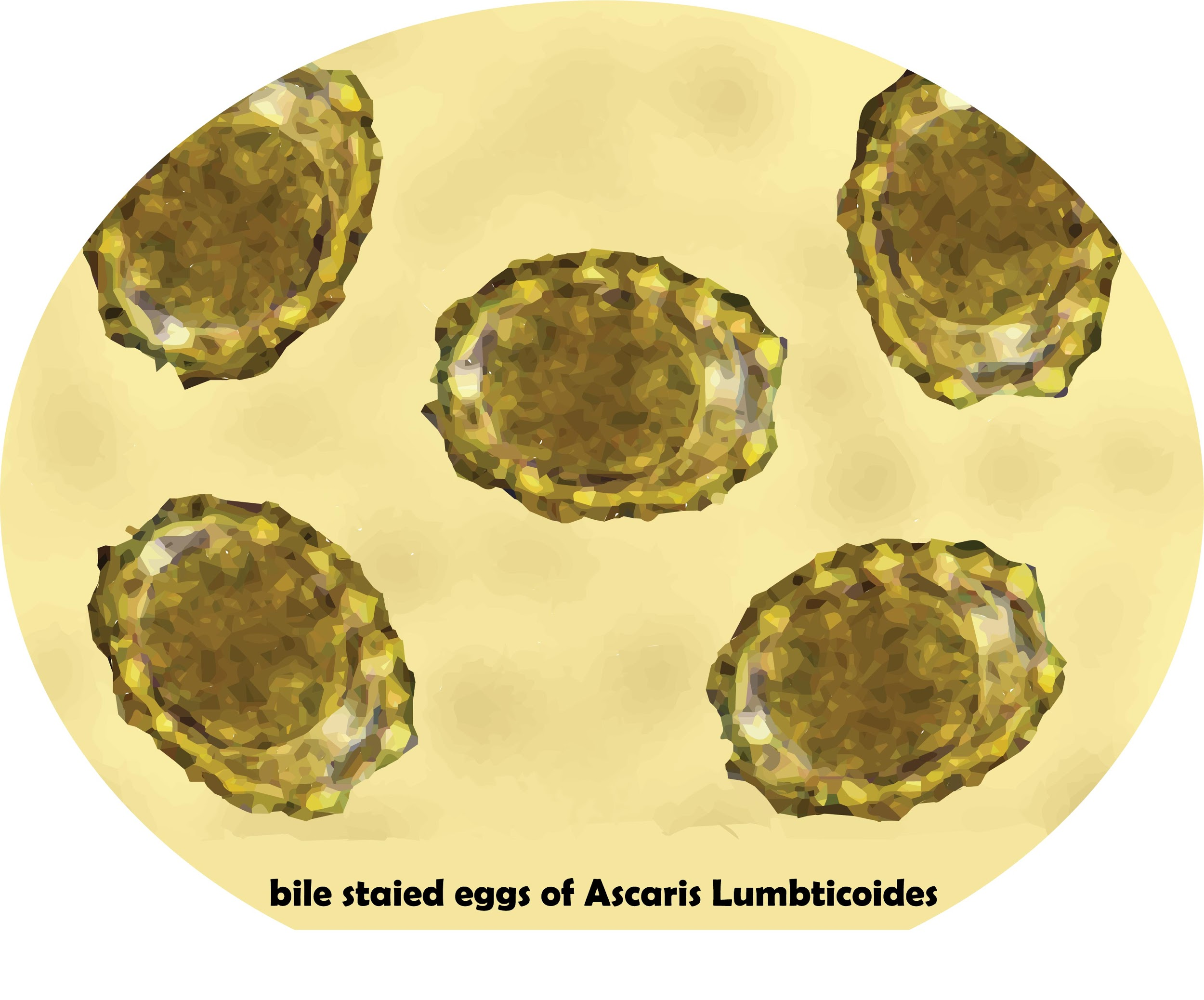
Infections of Ascaris usually occurs by
(a) Drinking water containing eggs of ascaris
(b) Eating imperfectly cooked port
(c) Tse- tse fly
(d) Mosquito
Answer
590.1k+ views
Hint: Infections of Ascaris occur during rainy months, tropical and subtropical countries. Indiscriminate defecation particularly near areas of habitation seeds the soil. Children become infected by ingesting soil or putting soiled items in their mouth.
Complete step by step answer:
Largest nematode to infect the human intestine. A common cream colored roundworm which is parasitic in the intestines of humans. The eggs may contaminate unwashed vegetables and water supplies. Eggs can also be carried by cockroaches, flies, wind, and even on money. Eggs can survive for longer periods as long as they are kept warm, in shade, and moist conditions are provided. Modes of transmission by mainly via ingestion of water or food (raw vegetables or fruit in particular) contaminated with A. lumbricoides eggs.

Additional Information:
- Some larvae migrate to ectopic sites and depend upon number and location, causing various inflammatory responses, leading to very severe allergic reactions.
- In the lungs worms destroy capillaries in the lungs which can cause hemorrhage.
- Migration of white blood cells leads to more congestion which is a condition known as Ascaris pneumonitis than in Loeffler's pneumonia lung tissue destroyed and bacterial infections occur, may be fatal.
- In innate Immune Response is caused by macrophages, neutrophils and most importantly eosinophils where the worms would be coated with IgG or IgE which would increase the release of eosinophil granules.
- In adaptive Immune Response causes high IL- 4 production, high levels of IgE, eosinophilia and mastocytosis but prior infection does not confer protective immunity.
So, the correct answer is ‘Drinking water containing eggs of ascaris.’
Note:
- Washing hands properly with soap and water before eating food.
- Good sanitation practise is needed to prevent fecal contamination of soil.
- Wash properly, peel or cook all raw vegetables and fruits before eating.
- Prevention of reinfection poses a substantial problem as this parasite is abundant in soil. - Treatment is albendazole: a single oral dose of 400 mg and mebendazole: 100 mg orally and twice daily for 3 days.
Complete step by step answer:
Largest nematode to infect the human intestine. A common cream colored roundworm which is parasitic in the intestines of humans. The eggs may contaminate unwashed vegetables and water supplies. Eggs can also be carried by cockroaches, flies, wind, and even on money. Eggs can survive for longer periods as long as they are kept warm, in shade, and moist conditions are provided. Modes of transmission by mainly via ingestion of water or food (raw vegetables or fruit in particular) contaminated with A. lumbricoides eggs.

Additional Information:
- Some larvae migrate to ectopic sites and depend upon number and location, causing various inflammatory responses, leading to very severe allergic reactions.
- In the lungs worms destroy capillaries in the lungs which can cause hemorrhage.
- Migration of white blood cells leads to more congestion which is a condition known as Ascaris pneumonitis than in Loeffler's pneumonia lung tissue destroyed and bacterial infections occur, may be fatal.
- In innate Immune Response is caused by macrophages, neutrophils and most importantly eosinophils where the worms would be coated with IgG or IgE which would increase the release of eosinophil granules.
- In adaptive Immune Response causes high IL- 4 production, high levels of IgE, eosinophilia and mastocytosis but prior infection does not confer protective immunity.
So, the correct answer is ‘Drinking water containing eggs of ascaris.’
Note:
- Washing hands properly with soap and water before eating food.
- Good sanitation practise is needed to prevent fecal contamination of soil.
- Wash properly, peel or cook all raw vegetables and fruits before eating.
- Prevention of reinfection poses a substantial problem as this parasite is abundant in soil. - Treatment is albendazole: a single oral dose of 400 mg and mebendazole: 100 mg orally and twice daily for 3 days.
Recently Updated Pages
Basicity of sulphurous acid and sulphuric acid are

Master Class 12 English: Engaging Questions & Answers for Success

Master Class 12 Social Science: Engaging Questions & Answers for Success

Master Class 12 Maths: Engaging Questions & Answers for Success

Master Class 12 Economics: Engaging Questions & Answers for Success

Master Class 12 Physics: Engaging Questions & Answers for Success

Trending doubts
Which are the Top 10 Largest Countries of the World?

Draw a labelled sketch of the human eye class 12 physics CBSE

Draw ray diagrams each showing i myopic eye and ii class 12 physics CBSE

Giving reasons state the signs positive or negative class 12 physics CBSE

Explain esterification reaction with the help of a class 12 chemistry CBSE

What is defined as a solenoid Depict a diagram with class 12 physics CBSE




